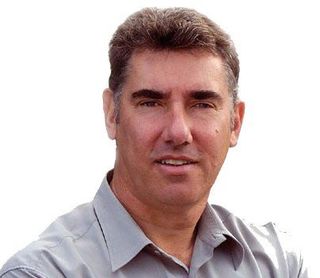What will future franchises look like
WHAT WILL FUTURE FRANCHISES LOOK LIKE?
WHAT WILL FUTURE FRANCHISES LOOK LIKE?
WHAT WILL FUTURE FRANCHISES LOOK LIKE?
Ten years ago, did anyone predict the disruption that Uber and AirBnB would cause in the taxi and accommodation industries? Of course not. So what makes a pair of academics at the University of Sydney and someone with the same name as a man described by the Melbourne Age
as “one of Australia’s worst conmen” think they can predict the future of franchising?
Professor Andrew Terry and Dr Cary Di Lernia work at the University of Sydney Business School. Prof Terry has substantial experience in franchising, particularly in relation to franchising development and regulation in Asia. He drafted Vietnam's franchise laws. Earlier this year, he and Dr Di Lernier wrote an article entitled Why the Future Franchise Will Look Nothing Like Today’s
for the Wall Street Journal.
Maurice Roussety – it doesn’t sound like a common name. We wouldn’t have thought there would be two people with that name in Australia. But evidently there are. One was an accountant specialising in franchising who became infamous as one of the country’s most notorious conmen and was jailed in 2007 for a minimum of eight years non-parole. The other is currently studying franchising at Griffith University in Queensland under Professor Lorelle Frazer, who is well known to those in the New Zealand franchising sector.
Would you call this a franchise?
The second Maurice Roussety disagreed with what he called Terry’s and Di Lernia’s “fix-all solution to current and emerging franchising challenges” in an article entitled Would you call this a franchise?
published by Griffith University’s Asia-Pacific Centre for Franchising Excellence.
“Imagine a setup that’s part franchise, and part not,” say Terry and Di Lernia. “Such as a quaint country inn that’s owned by a mom and pop and is full of memorabilia and other personal touches – but whose kitchen and cleaning staff were vetted and trained by a franchiser [sic] according to a corporate playbook.”
In other words, an individualistic one-off local business supported by a proven franchise-style system and infrastructure.
Quasi-franchising
“It’s an idea we call quasi-franchising,” say Terry and Di Lernia. “Most service chains operate by replicating a template: The recognizable brand is out front, and a finely honed operation works in the back. What we propose is splitting those two.”
Wait just a minute, says Roussety’s article. Would you call this a franchise?
Well, no. And neither would Terry and Di Lernia. That’s why they called it a quasi-franchise. All they’re saying is that for aspiring business people who don’t want a “McDonaldised” business, their model offers front-end independence and individual flair while providing the back-end systems and support in which franchising excels.
The idea is not new.
15th Ave E Coffee and Tea is a Starbucks "stealth" store. Starbucks, that doyen of standardisation, has been experimenting with “localised” one-off coffee shops with Starbucks systems but not branding, the only giveaway being a small sign in the front window: “Inspired by Starbucks”.
Three or four years ago I came up with the idea of an “Unfranchise” where non-franchised business people could subscribe to different levels of back-end business systemisation, support and coaching according to their need. I still think the idea has merit, I simply haven’t had the time to do anything about it.
My point is that change and disruption is occurring across all industries – and franchising is no exception. Do we know what franchising will look like in five or even two years’ time? No, we don’t. But neither do we know what it won’t look like.
What we do need to be is open to and prepared for change. And not too quick to slam new concepts for not being consistent with our perception of franchising.
My name is Robin La Pere, and I have been working with disruptive new business models since Apple burst into the market with its unique personal computers.
I was at the forefront of major new movements in the retail, financial, construction and franchise industries and work with established businesses as well as start-ups on creating and renewing business models and improving franchise performance.
Are you confident about the future of your franchise?
Relevant Articles
WHO AM I?
My name is Robin La Pere. I’m a business, franchise and marketing consultant with real
experience in these fields and a proven background in helping my clients to futureproof, grow or franchise their businesses. I offer a free Initial Consultation so we can get to know each other before we make the decision to work together.
Download your free e-book
LET’S GET STARTED!
Check out my Free Resources
Subscribe to my Free Email Newsletter
Schedule your Free Consultation

